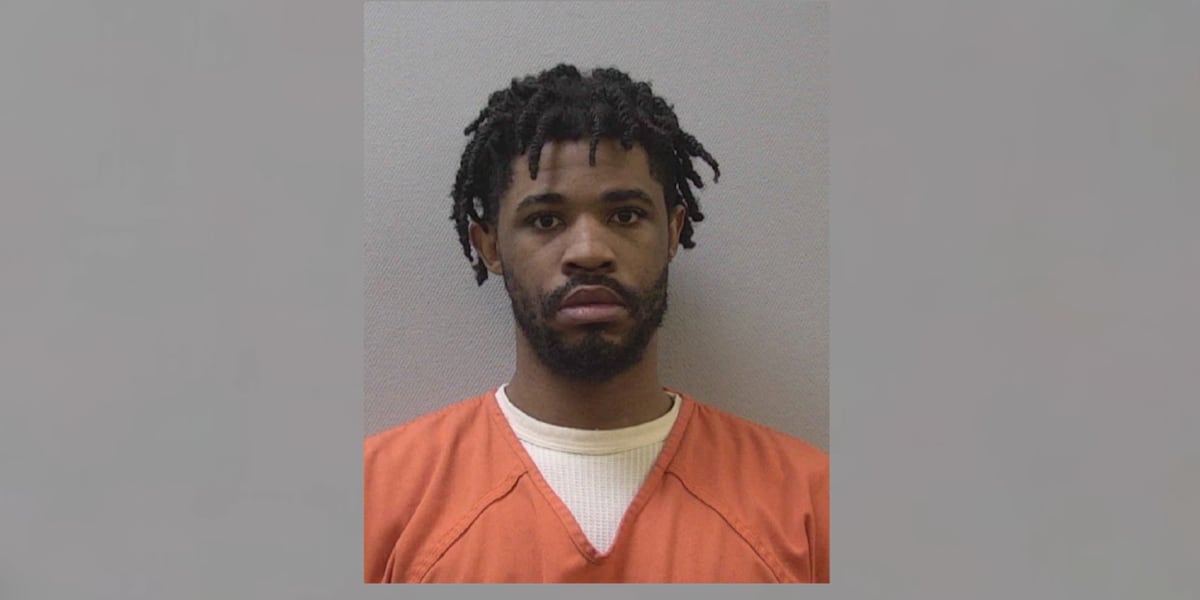
COLUMBIA, S.C. (WIS) – A family member of the man charged in the 2019 killing of a transgender woman from Allendale County took the stand Thursday in the United States’ first federal hate crime trial for a gender-identity based murder, and testified that the defendant confessed to the crime.
The Department of Justice alleges that Daqua Ritter shot Dime Doe along a rural road on a Sunday afternoon in the summer of 2019.
Prosecutors called Jamie Priester, Ritter’s cousin, as their 18th witness.
She testified that on the August 5, 2019, the day after Doe’s murder, Ritter allegedly confessed to the killing while in a car with her son.
The defendant asked them to keep it a secret, Priester said.
Priester testified that Ritter told them he did this because he wanted Doe to delete a picture that was on her phone.
The government has argued Ritter murdered Doe to stop word from spreading in the small, tight-knit community of less than 3,000 people that he and the victim were in a relationship.
Prior to the murder, rumors that they were romantically involved had already been percolating in Allendale, as friends of both Doe and Ritter have testified.
Additionally, Ritter’s girlfriend at the time, Delasia Green, has become suspicious as well.
When Ritter allegedly made this confession, sitting in the passenger seat with two people he has known his entire life, “He was afraid, shooken up,” Priester said.
Priester said she has not seen Ritter since, before testifying against him in this historic trial.
Ritter grew up in Brooklyn, but would spend summers in Allendale.
The summer of 2019 is the last year anyone has stated they have seen him in the rural South Carolina town.
Prosecutors argue that he fled for New York days after the killing to evade law enforcement.
Jurors also heard testimony from several of Ritter’s friends from Allendale, including Xavier Pinckney, who has pleaded guilty to lying to investigators about the case.
On the stand Thursday, Pinckney characterized Ritter as a “cool friend” whom he would smoke weed with regularly during the summer.
Prior to Doe’s death, Ritter referenced the rumors of his affair, and threatened to beat the victim up, Pinckney said.
He testified that he saw Ritter several times on the day of Doe’s murder.
They smoked weed in the morning, Pinckney said, and he noticed a gun print in Ritter’s dark blue jeans.
Prosecutors have established that Ritter then asks to use Pinckney’s phone to call and text Doe, later getting into her car.
A confused Pinckney returns calls and texts from an unknown number later that afternoon.
It was Ritter asking where his group of friends was, he testified.
“I thought he ain’t have no phone,” he said.
An FBI analysis determined that the call at 4:41 p.m. came from Doe’s phone number.
When Ritter returns to a neighbor’s house on Razor Road sweating, he is wearing different clothes, according to Pinckney.
The government has not pinpointed Doe’s exact time of death, but has elicited that it is sometime after a 3:10 p.m. traffic stop, and before the victim’s body was discovered in her car shortly before 6 p.m.
The crime scene, on Concord Church Road, is not far from the home of Ritter’s uncle in the country.
Ritter’s uncle’s ex-girlfriend, Kiera Mallory, testified Thursday, and said the defendant came to the house on the evening of the murder.
She said he was acting strange, and asked his uncle for a ride.
Witnesses have said they saw Ritter carrying a grocery bag of what they believed to be clothing following Doe’s murder, and that they saw smoke coming from the yard where Ritter and three friends were hanging out on the night of August 4.
Artaveis Youmans, who said he was present at the burn barrel, testified that during this time Ritter commented about Doe’s death.
According to Youmans, Ritter said, “Nobody gonna have to worry about [Doe] anymore.”
Later, Pinckney said Ritter and another friend asked him to help hide a gun.
This is the second witness who has testified that Ritter had conversations with associates about getting rid of a weapon.
The defense, on cross examination of the defendant’s friends, questioned their motivations, and in the case of Pinckney, highlighted that his stories have changed several times through the course of the investigation.
“Would you trust somebody who lies?” defense attorney Joshua Kendrick asked Pinckney.
“Everybody deserves chances,” he replied.
When Pinckney admitted that he could not remember specific dates in question, Kendrick established that Pinckney’s memory is shaky due to his habit of smoking marijuana.
“I smoke too much weed to keep track of the day,” he said.
Multiple times throughout Thursday’s proceedings, witnesses had to be reminded of statements they made during grand jury testimony as their testimony at trial had changed.
Lindsey Vann, an attorney for Ritter, emphasized this point in her opening statement, and said that some of Ritter’s friends cannot be trusted because their stories conflict with each other, and prior statements they themselves have made.
In a surprising statement, Mallory disclosed that she had heard rumors about Ritter killing Doe on the day of the killing, which prompted a motion for a mistrial based on hearsay.
The judge denied the motion.
Testimony resumes on Friday morning.
Feel more informed, prepared, and connected with WIS. For more free content like this, subscribe to our email newsletter, and download our apps. Have feedback that can help us improve? Click here.
Copyright 2024 WIS. All rights reserved.



